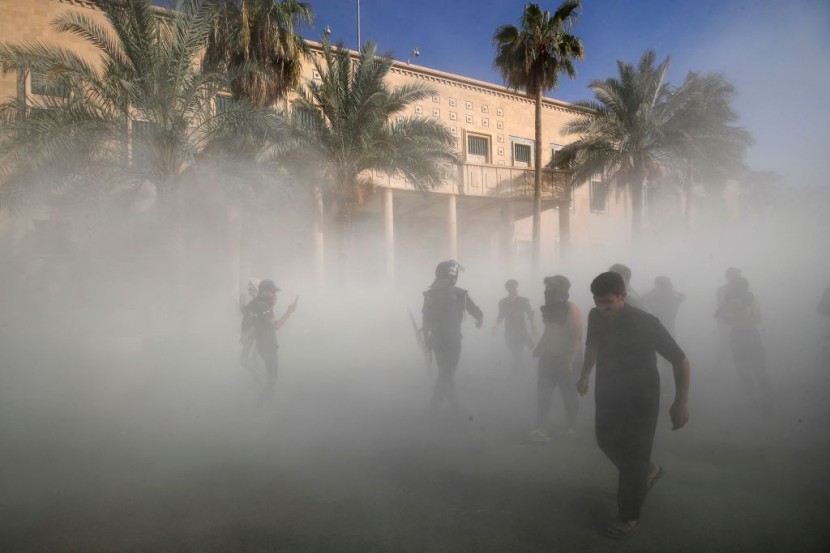
Iraq's influential cleric, Muqtada al-Sadr, has urged his supporters to stand down amid violent protests that have resulted in at least 21 dead and hundreds of others injured following his announcement of retirement from politics.
The official's appeal was made after more than 250 were injured in clashes that began on Monday. Al-Sadr's supporters stormed the capital's heavily fortified Green Zone and the Republican Palace, where the cabinet meets.
Iraqi Cleric Urges Calm Amid Violent Protests
Demonstrators were seen swimming in the palace's pool and waving Iraqi flags while others clashed with Iraqi security forces in what turned out to be some of the deadliest violence seen in Baghdad in years.
The cleric apologized on Tuesday to the Iraqi people and ordered his supporters to withdraw from the Green Zone, giving them an ultimatum. He said that the demonstrations will not stop, including from parliament, within 60 minutes of his remarks, he will disavow the movement itself.
Senior Iraqi officials, including the outgoing Prime Minister Mustafa al-Kadhimi, had urged al-Sadr to call on his supporters to withdraw from the Green Zone. In an address during a press conference in the holy city of Najaf, the cleric thanked government forces for "remaining neutral" during the crisis, as per CNN.
"I am walking, with my head bowed, and I apologize to the Iraqi people who are the only ones that have been harmed," said al-Sadr. Security forces also said that protesters started to withdraw from the Green Zone immediately after the cleric's remarks as a video showed large crowds of protesters leaving the area in Baghdad.
Minutes after al-Sadr's plea, the Iraqi military said it would lift a nationwide curfew that was imposed on Monday to address the protests. Furthermore, the United Nations Assistance Mission in Iraq (UNAMI), welcomed the "recent moderate declaration" by al-Sadr.
According to Fox News, Iranian authorities announced border closures in an effort to prevent the violent protests from creeping across its shared border with Iraq and Kuwait. They also called on citizens to leave Iraq immediately in fear for their safety.
Iraq's Political Unrest
The demonstrations stem from 10 months of political unrest after al-Sadr's party won the largest share of parliamentary seats in the October 2021 election but failed to secure the government majority.
The result has pushed Baghdad's politics into a scene of fractional paralysis and infighting between Shiite political leaders. About two-thirds of Iraqis are Shiite while the remaining are Sunni, who lost political dominance after the United States toppled the Saddam Hussein regime.
However, infighting amongst the Shiite majority has risen in recent years as Iranian-backed Shiites and Iraqi-nationalistic Shiites have vied for power. Al-Sadr, who is supported by Iraqi nationalists and some of the country's poorest that were oppressed under the Hussein regime, refused for months to negotiate terms with his Iran-backed Shiite rivals.
Al-Sadr's announcement of his retirement followed a similar move made by Shia spiritual leader Ayatollah Kadhim al-Haeri. The latter announced that he was stepping down as religious authority. Despite al-Haeri's disagreements with al-Sadr, he has long been the religious scholar that the Sadrist movement followed in their spiritual and life affairs, Aljazeera reported.
Related Article:
Last Leader of Soviet Union Mikhail Gorbachev Dead at 91, Cause of Death Revealed








